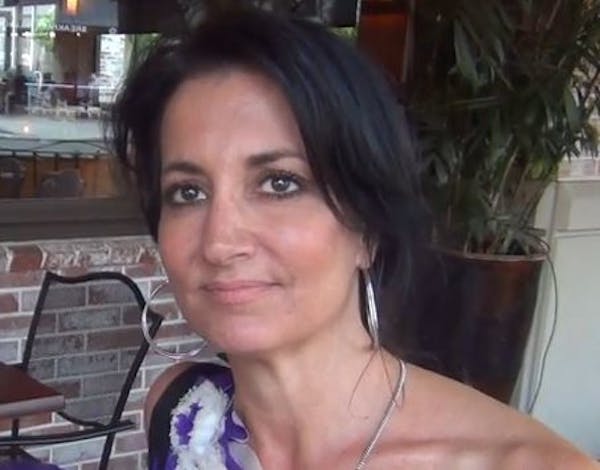As blogger Michael Brodkorb has reported on two Lakeville sisters who went missing, he has written extensively about the girls' mother, Sandra Grazzini-Rucki, photographed her in public, made attempts to interview her and sat through each of her court hearings.
But Grazzini-Rucki claims it's harassment, and a Washington County judge on Monday granted her a restraining order against Brodkorb.
Brodkorb, who has blogged for the Star Tribune and now writes extensively about the case on his website Missing in Minnesota, sees it as a violation of his First Amendment rights and in the short-term as a threat to his ability to cover a sentencing hearing on Wednesday for Grazzini-Rucki. Nearly all of the accusations in Grazzini-Rucki's petition are false and an attempt to get him to stop reporting on the case, he said.
"The chilling effect is that if someone doesn't like coverage," he said, "they could go to a courthouse and file what I believe to be a fraudulent document with fictitious information to game the system."
A Dakota County jury found Grazzini-Rucki guilty in July of six counts of felony deprivation of parental rights after she hid her daughters for more than two years at a western Minnesota horse ranch.
A onetime high-ranking operative in the Minnesota Senate and state Republican Party, Brodkorb delivered reporting that was instrumental in helping law enforcement eventually find the girls in November 2015.
In her petition for the restraining order, Grazzini-Rucki claimed Brodkorb put her in "great fear" for her safety due to "slanderous misinformation on multiple websites, accounts, and media outlets he is spreading has damaged my reputation, and caused others to make similar harassing and defamatory remarks against me."
Though she never writes that Brodkorb is a journalist and blogger, she said his posts have prompted other people to harass her through social media, Grazzini-Rucki wrote, where she said she's been compared to a child molester and implicated in a terrorist group. One commenter said she should be "deported to Mars," she alleged.
She also accused Brodkorb of following her in his car and surveilling her at her home. He denies the allegations.
A call to Grazzini-Rucki's attorney, Michelle MacDonald, was not returned.
Judges who get petitions for restraining orders must initially assume that the allegations are true and then determine if they meet the legal definition of harassment. If they do, a judge must grant the order, but then quickly hold a hearing if requested.
"It's designed to afford protection quickly and ferret out the truth later," said Michael Boulette, a Minneapolis family law attorney.
At the hearing, Boulette said the burden to prove harassment falls on the person who requested the restraining order. If not, the judge has to vacate the order.
It's unusual for a restraining order to be brought against a journalist, said Jane Kirtley, a University of Minnesota journalism professor. And some of what Grazzini-Rucki accuses Brodkorb of falls into the category of persistent journalism, Kirtley said. Still, journalists are not allowed to break the law to report a story. The judge in this case may have to determine whether Brodkorb's reporting did just that, she said.
The Society of Professional Journalists' Minnesota Pro Chapter said it wanted to wait until the restraining order hearing before weighing in on the case.
That hearing is set for next Thursday in Stillwater — the day after Grazzini-Rucki's sentencing.
Brodkorb said he still plans to attend the sentencing, which he believes he can do and still comply with the order, which bars him from having any "direct or indirect contact" with Grazzini-Rucki.
Brandon Stahl • 612-673-4626

A plume of PFAS chemicals under the east metro is moving. The state has a new plan to stop it.

Andover High School teacher leads effort for more understandable driver's tests

Trail section at one of Minnesota's most iconic spots closing for rehab

Will 'shotgun only' zone for deer in southern Minnesota be abolished?

